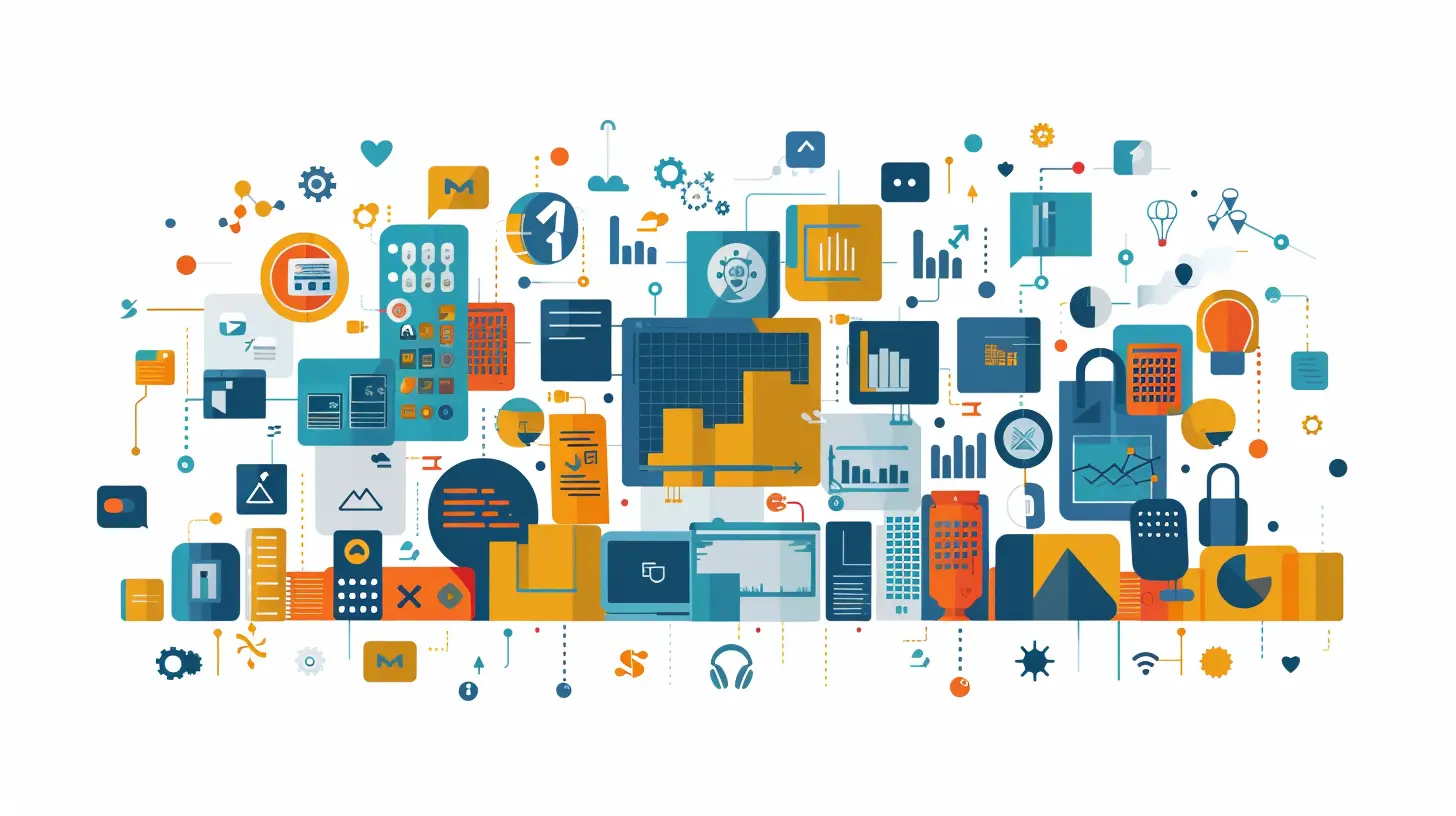The Impact of Big Data on Social Media Marketing
12 August 2025
Social media has evolved from a fun pastime into a powerful business tool. Whether you're a startup or an industry giant, tapping into the data behind these platforms can mean the difference between an okay campaign and a mind-blowing success.
But have you ever stopped to think about how much data is generated every second? Every like, comment, share, and even the time you spend watching a video contributes to a massive pool of information—Big Data!
In this article, we'll dive into how Big Data is shaking things up in social media marketing and why it’s a game-changer for businesses looking to level up their engagement and conversions. 
What Is Big Data and Why Should You Care?
Alright, let’s break it down. Big Data refers to vast amounts of information collected from various sources, including social media, search engines, and online transactions. This data isn’t just massive in quantity; it’s also rich in insights!Think of it as an all-you-can-eat buffet of consumer behavior, preferences, and trends. Businesses that know how to use Big Data can:
✅ Predict customer behavior
✅ Improve personalization
✅ Boost engagement rates
✅ Make smarter marketing decisions
Now, let’s see how this enormous wave of data affects social media marketing. 
1. Better Audience Targeting
Ever wonder how social media ads seem to know exactly what you like? It’s not magic—it’s Big Data at work!With massive amounts of user data available, businesses can create highly targeted ads that reach the right audience at the perfect time. Facebook, Instagram, Twitter, and LinkedIn all use Big Data to analyze user habits and improve ad targeting.
For example, have you ever Googled a product, and then—bam—an ad for the same product appears on your feed? That’s because Big Data tracks your online behavior and ensures that businesses can serve you relevant ads.
The result?
✔️ Higher conversion rates
✔️ Lower ad spending wastage
✔️ More personalized ad experiences
In short, businesses no longer have to guess what their audience wants—they know it! 
2. Improved Customer Engagement
Engagement is the holy grail of social media marketing. If people like, comment, and share your content, your brand gets more visibility. But how do brands ensure they create engaging content?Big Data helps marketers understand:
- What type of content their audience enjoys
- The best time to post for maximum engagement
- Which platforms work best for their brand
For instance, tools like Google Analytics or Facebook Insights track engagement metrics, such as click-through rates (CTR), likes, and shares. Brands can then tweak their strategies based on these insights.
So, instead of blindly posting and hoping for the best, businesses now have data-driven confidence in their social media strategy. Smart, huh? 
3. Predicting Trends Before They Happen
Wouldn’t it be amazing if you could predict the next viral trend before it even happens? With Big Data, marketers can do just that!By analyzing vast amounts of social media data, businesses can identify:
✔️ Emerging trends
✔️ Popular hashtags
✔️ Viral content patterns
For example, during the rise of short-form videos, brands that caught on early (like TikTok marketers) saw massive engagement spikes. Those who ignored the trend? Well, they were left in the dust.
Thanks to Big Data, businesses can stay ahead of the curve instead of playing catch-up.
4. Real-Time Data for Quick Decision Making
Imagine investing thousands of dollars into an ad campaign only to realize it’s flopping. Ouch! Luckily, Big Data eliminates this problem by providing real-time insights.Platforms like Google Analytics, Facebook Ads Manager, and Hootsuite allow brands to track their campaign performance in real time. If something isn’t working, they can quickly adjust instead of waiting until it’s too late.
This means:
✔️ Instant adjustments to underperforming ads
✔️ Optimized content strategies on the fly
✔️ Maximized ROI (Return on Investment)
Social media marketing used to be a guessing game, but now, thanks to Big Data, it’s a precision-based science.
5. Personalization Makes All the Difference
You’ve probably noticed that social media feels more and more tailored to your interests. That’s because Big Data enables hyper-personalization.Take Netflix and Spotify, for example. They use user data to recommend content you’re most likely to enjoy. Social media marketers follow the same playbook.
Businesses can personalize:
- Ad recommendations (based on browsing history)
- Email marketing campaigns (tailored product suggestions)
- Chatbots & AI interactions (customer support on steroids)
It's like having a personal shopper who knows your style better than you do!
6. Sentiment Analysis: Understanding Customer Mood
Wouldn’t it be awesome if brands could read minds? Well, Big Data makes that almost possible through sentiment analysis.By analyzing social media comments, reviews, and customer interactions, businesses can gauge:
✅ Whether customers like or dislike a product
✅ How people feel about a brand in real-time
✅ What improvements customers want
For instance, if a brand launches a new product and sees a flood of negative comments, they can quickly address the issue before it turns into a PR nightmare.
This real-time feedback loop allows businesses to be more responsive, improving their reputation and customer satisfaction.
7. Influencer Marketing with Data-Driven Precision
Influencer marketing has taken off in recent years, but did you know Big Data helps businesses choose the right influencers?Instead of randomly picking influencers, brands now use data-driven insights to find:
✔️ Influencers with the highest engagement rates
✔️ Audience demographics that match brand goals
✔️ Authenticity and credibility metrics
This prevents companies from wasting money on influencers who don’t bring actual results. Instead, businesses can focus on ROI-driven partnerships that genuinely boost brand awareness.
8. Smarter Competition Analysis
Your competitors are already using Big Data—so why not beat them at their own game?With social media analytics tools, companies can monitor competitors’ strategies, including:
✅ Most engaging content formats
✅ Posting schedules that work best
✅ Customer feedback and sentiment toward their brand
This data helps businesses refine their own strategies and stay ahead of the competition. As they say, knowledge is power!
Final Thoughts
Big Data isn’t just a buzzword—it’s a powerhouse that drives modern social media marketing. From predicting trends to personalizing content, it gives businesses the insights they need to create more effective, targeted, and engaging campaigns.The brands that leverage Big Data effectively will not just survive but thrive in the ever-changing digital landscape. So, if you’re not using data to optimize your social media marketing... what are you waiting for?
all images in this post were generated using AI tools
Category:
Big DataAuthor:

John Peterson
Discussion
rate this article
1 comments
Nadia Mahoney
In the digital tapestry, big data weaves, Crafting connections in the social breeze. Marketing blooms, insights take flight, Data's embrace transforms day into night. A revolution in sight.
August 16, 2025 at 3:11 AM

John Peterson
Thank you for your poetic reflection! You've beautifully captured the essence of how big data shapes and transforms social media marketing.


